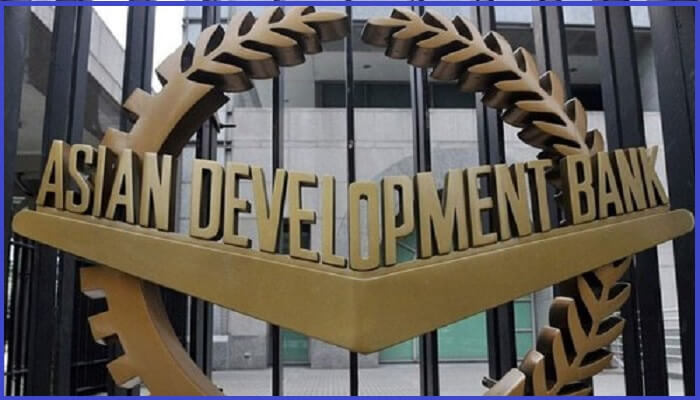ISLAMABAD: The Asian Development Bank (ADB) approved a sum of $685 million financing for urban development projects in Khyber Pakhtunkhwa (KP) and strengthening Pakistan’s energy sector sustainability.
According to a statement issued by the ADB, financing will be provided for the KP Cities Improvement Project that will help construct two clean water supply treatment facilities, three sewerage treatment facilities, and will rehabilitate dysfunctional tube wells among several other important sub-projects in Abbottabad, Kohat, Mardan, Mingora, and Peshawar.
More than 3.5 million people will benefit from improved access to clean and safe water, reliable and integrated waste management and sanitation services, green urban spaces, and gender-friendly urban facilities. About 150,000 households will gain new connections to water supply systems and have smart water meters installed in their homes, said the statement.
With its rapidly growing urban population, KP is becoming more exposed to health risks due to deteriorating municipal services and the impacts of climate change. Strong, climate-resilient urban infrastructure combined with access to reliable services will benefit people, the environment, and support sustainable development.
ADB Director General for Central and West Asia Yevgeniy Zhukov said that large urban projects are often delayed due to their inherent complexity and competing interests in limited urban space.
Read More: ADB approves $603m to strengthen, expand Ehsaas initiatives
He said, “This project has used ADB’s project readiness financing facility to ensure detailed engineering design, safeguards assessments, and other critical preparatory work was completed in advance — a first for central and west Asia region.” That will ensure the transformative benefits of this project will flow to the people of Khyber Pakhtunkhwa province more quickly, he added.
ADB will provide a $380 million loan and a $5 million grant, while the Asian Infrastructure Investment Bank will provide co-financing of $200 million, subject to approval of their board of directors. Together with $65 million in financing from the government of Pakistan, this represents ADB’s largest urban project ($650 million equivalent) in Pakistan.
ADB’s loan includes more than $106 million for climate adaptation and mitigation, the bank’s largest climate financing contribution in any urban project in 2021, reaffirming its commitment to helping its developing member countries fight climate change.
With a strong focus on gender, the project will boost women’s access to economic opportunities and increase their participation in urban governance by upgrading a centre dedicated to women’s skills development.
The project will rehabilitate streets, parks, and nature trails, adding female-friendly urban facilities such as women’s sports complexes, family areas, and well-lit rest areas and toilets. The project will also support a scholarship program for qualified female students.
$300m aid to strengthen energy sector
Meanwhile, the Asian Development Bank also approved a $300 million policy-based loan to support financial, technical, and governance reforms to strengthen Pakistan’s energy sector and improve its financial sustainability.
The financing is part of the second sub-programme of ADB’s Energy Sector Reforms and Financial Sustainability Programme, which aims to improve the governance of Pakistan’s energy sector and reduce and manage the accumulated cash shortfall across the power supply chain known as circular debt, according to a statement issued by the Manila-based lender.
The first sub-programme in the amount of $300 million was approved in December 2019.
ADB Director General for Central and West Asia Yevgeniy Zhukov said that as Pakistan’s key development partner in the energy sector, ADB has been supporting the government to expand access to reliable, affordable electricity and help enact reforms that make the sector more efficient and sustainable.
He said that the programme will help facilitate public and private sector investment across the energy sector value chain through key policies and integrated planning, and will help expand renewable energy generation.
According to the statement, disruption from the coronavirus disease (Covid-19) pandemic stressed the finances and supply chains of Pakistan’s energy sector, slowing the pace of sector reforms initiated by the government in 2019. Losses incurred by state-owned enterprises that impacted the energy sector’s circular debt, together with pandemic relief measures put unprecedented pressure on the energy sector’s liquidity and finances.
Reforms under ADB’s programme will help make Pakistan’s energy sector more financially sustainable by addressing inefficient tariffs and subsidies, high generation costs, system losses, and a lack of integrated planning. The programme also aims to enhance energy infrastructure and professionalise the management of energy entities to improve their performance.
ADB Central and West Asia Director for Energy Joonho Hwang said that ADB continues to work with development partners to advance crucial energy sector reforms and implement a road map for a competitive electricity market. Ultimately, these reforms will help improve the quality and reliability of power supply to the benefit of all—commercial, domestic, urban, and rural consumers, Hwang added.
Pakistan is a founding member of ADB. Since 1966, ADB has committed more than $36 billion to promote inclusive economic growth and improve the country’s infrastructure, energy and food security, transport networks, and urban and social services.


